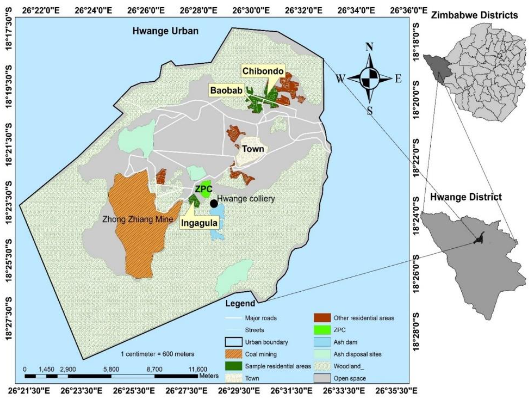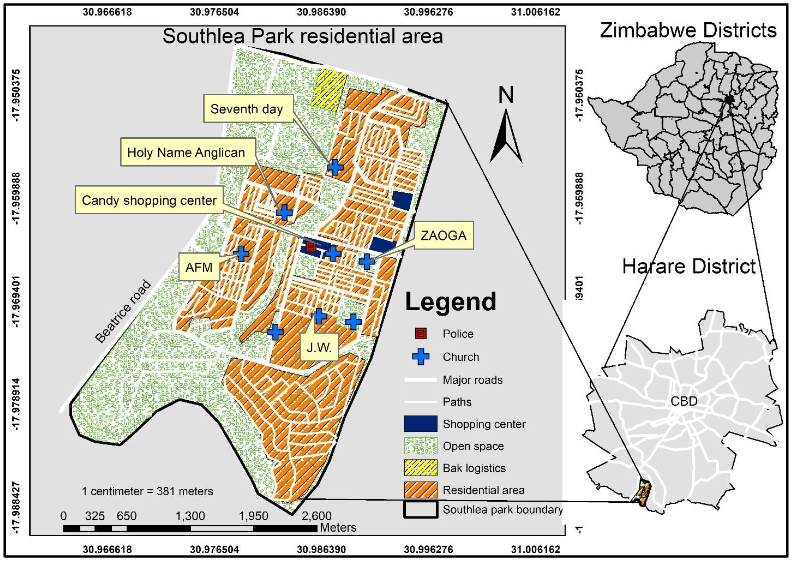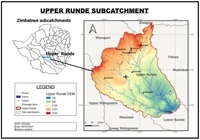Digitalization and country image: Key influencing factors (a case example of Nigeria)
Abstract
This article examines the multi-faceted role of digital technologies in shaping a country’s image, with particular reference to Nigeria, the largest economy in West Africa. Digital technologies are playing an increasingly significant role in the development of country image, impacting cultural, economic, and political aspects, and this is drawing increasing interest and focus from the academic community. Here, the ways in which digital technologies contribute to the creation and projection of a country’s image are investigated via a two-stage research process. Firstly, a systematic literature review identifies key influencing factors (IFs) that are represented in a provisional conceptual framework (PCF). The IFs are the impact of social media, the level of digitalization and support infrastructure, cybersecurity vulnerabilities, technology innovation, standards and governance, and education and awareness. Secondly, a questionnaire based around the PCF was circulated to 10 leading academics and managers, in which they were asked for their views and experiences, and their assessment of the significance of each of the IFs. The exploratory paper concludes that digitalization has a significant influence on a country’s image, affecting perceptions of technological advancement, economic development, access to information, social transformation, and global competitiveness, and suggests that the framework put forward here may act as a model for cross-country comparisons in subsequent studies.
References
[1]Onwuegbuna G, Etim E, Fatile J. Impact of the ‘New Normal’–Induced Digital Transformation on Public Service Delivery and Governance in Nigeria: Challenges and Opportunities. Responsible Management of Shifts in Work Modes–Values for a Post Pandemic Future. 2022; 1: 197-215. doi: 10.1108/978-1-80262-719-020221016.
[2]Yina MN. The Challenges of Digital Technologies for Nigeria. Journal of Interdisciplinary Studies. 2020; 32(1): 81-94. doi: 10.5840/jis2020321/25.
[3]Revilla-Camacho MA, Rodriguez-Rad C, Garzon D, et al. Analysis of the influence of reputation, identity and image on the country brand. Academia Revista Latinoamericana de Administración. 2022; 35(2): 163-182. doi: 10.1108/arla-07-2021-0132.
[4]Buhmann A, Ingenhoff D. Advancing the country image construct from a public relations perspective. Journal of Communication Management. 2015; 19(1): 62-80. doi: 10.1108/jcom-11-2013-0083.
[5]Hakala U, Lemmetyinen A, Kantola S. Country image as a nation‐branding tool. Melewar TC, ed. Marketing Intelligence & Planning. 2013; 31(5): 538-556. doi: 10.1108/mip-04-2013-0060.
[6]Ajayi OJ, Muhammed Y, Olah F, et al. Effect of Information and Communication Technology (ICT) usage on cassava production in Otukpo Local Government Area of Benue State, Nigeria. International Journal of Agricultural and Biosystems Engineering. 2016; 10(3).
[7]Okeke A, Adesanya A. Digitalization and Economic Development in Nigeria: Opportunities and Challenges. Journal of African Development Studies. 2021; 10(2): 145-162.
[8]Adeleke F, Bello O. Digital Marketing and Nigeria’s Global Image: A Strategic Analysis. International Journal of Communication and Media Studies. 2023; 12(3): 112-129.
[9]Nwosu C, Okoli U. Digital Literacy in Nigeria: Challenges and Prospects. Journal of Information Technology Education. 2023; 22: 75-94.
[10]Adejumo DA, Wynn M, Vale VCFT. The Role of Digitalisation in Shaping a Country’s Image. European Conference on Cyber Warfare and Security. 2024; 23(1): 1-9. doi: 10.34190/eccws.23.1.2404.
[11]Hart C, Turk R. Doing a Literature Review: Releasing the Research Imagination (2nd Edition). The Cognitive Psychology Bulletin. 2019; 1(4): 57.1-57. doi: 10.53841/bpscog.2019.1.4.57
[12]Fink A. Conducting research literature reviews: From the internet to paper, 5th ed. SAGE Publications; 2019.
[13]Tranfield D, Denyer D, Smart P. Towards a Methodology for Developing Evidence‐Informed Management Knowledge by Means of Systematic Review. British Journal of Management. 2003; 14(3): 207-222. doi: 10.1111/1467-8551.00375.
[14]Webster J, Watson RT. Analyzing the past to prepare for the future: Writing a literature review. MIS Quarterly. 2002; 26(2): xiii-xxiii.
[15]Kraiwanit T, Limna P, Siripipatthanakul S. NVivo for social sciences and management studies: A systematic review. Advance Knowledge for Executives. 2023; 2(3): 1-11.
[16]Page MJ, McKenzie JE, Bossuyt PM, et al. The PRISMA 2020 statement: an updated guideline for reporting systematic reviews. BMJ; 2021.
[17]Terry G, Hayfield N, Clarke V, et al. Thematic Analysis. SAGE; 2017.
[18]Webb C. Analysing qualitative data: computerized and other approaches. Journal of Advanced Nursing. 1999; 29(2): 323-330. doi: 10.1046/j.1365-2648.1999.00892.x.
[19]Mason J. ‘Re-Using’ Qualitative Data: On the Merits of an Investigative Epistemology. Sociological Research Online. 2007; 12(3): 39-42. doi: 10.5153/sro.1507.
[20]Jabareen Y. Building a Conceptual Framework: Philosophy, Definitions, and Procedure. International Journal of Qualitative Methods. 2009; 8(4): 49-62. doi: 10.1177/160940690900800406.
[21]Wynn MG. Technology Transfer Projects in the UK. International Journal of Knowledge Management. 2018; 14(2): 52-72. doi: 10.4018/ijkm.2018040104.
[22]Riedl R, Benlian A, Hess T, et al. On the Relationship Between Information Management and Digitalization. Business & Information Systems Engineering. 2017; 59(6): 475-482. doi: 10.1007/s12599-017-0498-9.
[23]Abdallah-Ou-Moussa S, Wynn M, Kharbouch O, et al. Digitalization and Corporate Social Responsibility: A Case Study of the Moroccan Auto Insurance Sector. Administrative Sciences. 2024; 14(11): 282. doi: 10.3390/admsci14110282.
[24]Abdallah-Ou-Moussa S, Wynn M, Kharbouch O, et al. Technology Innovation and Social and Behavioral Commitment: A Case Study of Digital Transformation in the Moroccan Insurance Industry. Big Data and Cognitive Computing. 2025; 9(2): 31. doi: 10.3390/bdcc9020031
[25]Ahmed Z, Nathaniel SP, Shahbaz M. The criticality of information and communication technology and human capital in environmental sustainability: Evidence from Latin American and Caribbean countries. Journal of Cleaner Production. 2021; 286: 125529. doi: 10.1016/j.jclepro.2020.125529.
[26]Abdulquadri A, Mogaji E, Kieu TA, et al. Digital transformation in financial services provision: a Nigerian perspective to the adoption of chatbot. Journal of Enterprising Communities: People and Places in the Global Economy. 2021; 15(2): 258-281. doi: 10.1108/jec-06-2020-0126
[27]Anyanka H. The Image of a Country, its Link to Corruption and the impact on its Citizens in Diaspora Case Study: Nigeria [Bachelor’s thesis]. Tallinn University of Technology; 2018.
[28]Gebayew C, Hardini IR, Panjaitan GHA, et al. A Systematic Literature Review on Digital Transformation. In: Proceedings of the 2018 International Conference on Information Technology Systems and Innovation (ICITSI); 22-26 October 2018. pp. 260-265.
[29]Lee J, Kwak DH. The impact of digitalisation on country image: The moderating roles of political system and internet freedom. Telematics and Informatics. 2020; 51: 101413.
[30]Lee YK. Impacts of Digital Technostress and Digital Technology Self-Efficacy on Fintech Usage Intention of Chinese Gen Z Consumers. Sustainability. 2021; 13(9): 5077. doi: 10.3390/su13095077.
[31]Saad M. Key elements of nation branding: The importance of the development of local human capital in the UAE. In: Human Capital in the Middle East: A UAE Perspective. Springer; 2020.
[32]Ylianttila M, Kantola R, Gurtov A, et al. 6G white paper: Research challenges for trust, security and privacy. arXiv preprint; 2020.
[33]Schwab K, Sala-I-Martín X, Samans R, et al. The global competitiveness report 2016-2017. Geneva: World Economic Forum. 2016.
[34]Orngu CS. The Social Media and Nigeria’s Electoral Politics since 1999: Trends and Implications for Nigeria’s External Image. Nigerian Journal of Political and Administrative Studies (NJAPS). 2018; 4(1).
[35]Lüders A, Dinkelberg A, Quayle M. Becoming “us” in digital spaces: How online users creatively and strategically exploit social media affordances to build up social identity. Acta Psychologica. 2022; 228: 103643. doi: 10.1016/j.actpsy.2022.103643.
[36]Collins B, Hoang DT, Nguyen NT, et al. Trends in combating fake news on social media – a survey. Journal of Information and Telecommunication. 2021; 5(2): 247-266. doi: 10.1080/24751839.2020.1847379
[37]Johnson-Hart, M. Strategies for Sustaining Success in Small Businesses in Nigeria [PhD thesis]. Walden University; 2023.
[38]Armencheva I, Atanasova N, Ivanov I. Cyber globalization as an in/stability factor. IJASOS- International E-journal of Advances in Social Sciences. 2019; 5(13): 71-81. doi: 10.18769/ijasos.531497
[39]Oyewole AT, Okoye CC, Ofodile OC, et al. Cybersecurity risks in online banking: A detailed review and preventive strategies application. World Journal of Advanced Research and Reviews. 2024; 21(3): 625-643. doi: 10.30574/wjarr.2024.21.3.0707.
[40]Lee SM, Trimi S. Convergence innovation in the digital age and in the COVID-19 pandemic crisis. Journal of Business Research. 2021; 123: 14-22. doi: 10.1016/j.jbusres.2020.09.041.
[41]Melissen J, Wang J. Debating Public Diplomacy. Martinus Nijhoff; 2019.
[42]Ezeigweneme CA, Umoh AA, Ilojianya VI, et al. Review of telecommunication regulation and policy: comparative analysis USA and AFRICA. Computer Science & IT Research Journal. 2024; 5(1): 81-99.
[43]Wong GKW, Reichert F, Law N. Reorienting the assessment of digital literacy in the twenty-first century: a product-lifecycle and experience dependence perspective. Educational technology research and development. 2023; 71(6): 2389-2412. doi: 10.1007/s11423-023-10278-1
[44]Aminu M, Sani I, Jodi R. Impact of Information and Communication Technology (ICT) on the Nigerian Education system. International Journal of Scientific & Technology Research. 2021; 10(7): 112-115.
[45]Chingoriwo T. Cybersecurity Challenges and Needs in The Context of Digital Development in Zimbabwe. British Journal of Multidisciplinary and Advanced Studies. 2022; 3(2): 77-104. doi: 10.37745/bjmas.2022.0046.
[46]Oladeinde M, Hassan AO, Farayola OA, et al. Review of IT innovations, data analytics, and governance in Nigerian enterprises. Computer Science & IT Research Journal. 2024; 4(3): 300-326. doi: 10.51594/csitrj.v4i3.685.
[47]Welby B, Tan EHY. Designing and delivering public services in the digital age. OECD; 2022.
[48]Sharma R, Gupta H. Leveraging cognitive digital twins in industry 5.0 for achieving sustainable development goal 9: An exploration of inclusive and sustainable industrialization strategies. Journal of Cleaner Production. 2024; 448: 141364. doi: 10.1016/j.jclepro.2024.141364.
Copyright (c) 2024 Author(s)

This work is licensed under a Creative Commons Attribution 4.0 International License.
Authors contributing to this journal agree to publish their articles under the Creative Commons Attribution 4.0 International License, allowing third parties to share their work (copy, distribute, transmit) and to adapt it for any purpose, even commercially, under the condition that the authors are given credit. With this license, authors hold the copyright.










